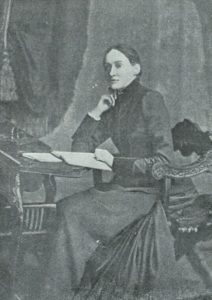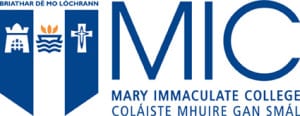Rosa Mulholland, Digital Renaissance and Digital Humanities in Trier, Germany
Citation: Brassil, G. and K. Laing. (2025) ‘Rosa Mulholland, Digital Renaissance and Digital Humanities in Trier, Germany’, IWWN Blog, date of posted entry. Available at (accessed date) Geraldine Brassil and Kathryn Laing In March 1909 Rosa Mulholland’s short story, ‘Krescenz: An Idyll on the…
Emerging Voices 6: Éadaoin Regan

Éadaoin Regan is currently in the final year of her PhD in the School of English and Digital Humanities, University College Cork. Her thesis, A method to the madness?: Representations of psychological disorder in Irish women’s fiction 1870-1914, employs feminist psychoanalysis and postcolonial theory…
Emerging Voices 5: Maria Mulvany

Maria Mulvany is an early career researcher funded by an Irish Research Council Postdoctoral Fellowship. Based at University College Dublin (UCD), Mulvany’s project “Ghostly Fictions: Haunting, Trauma and Time in Contemporary Irish Historical Fiction” engages with recent literary, queer and psychoanalytic theories of spectrality…
Research Pioneers 7: Margaret Kelleher
Margaret Kelleher’s first monograph on The Feminization of Famine and her co-edited volume on Gender Perspectives in Nineteenth-Century Ireland, both published in 1997, had gender questions at the very heart of her research. Her seminal work interrogated questions of tradition and canonicity in such…
Research pioneers 6: Gerardine Meaney
The publication in 2002 of The Field Day Anthology of Irish Writing: Women’s Writing and Traditions volumes 4 and 5 was a watershed moment in Irish literary history. Gerardine Meaney was among the principal co-editors of this endeavour, which evolved in response to the…



